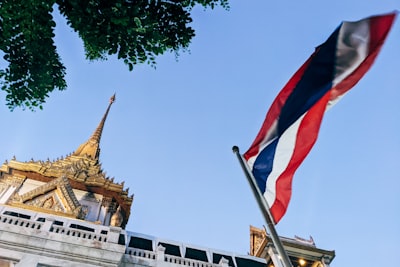Thailand Faces Political Uncertainty After PM Paetongtarn Shinawatra’s Suspension: What’s Next?
Thailand is once again in the global spotlight following the recent suspension of Prime Minister Paetongtarn Shinawatra, escalating the ongoing political turbulence that has characterized the country’s recent history. The controversy centers on a leaked phone call with Cambodia’s Hun Sen — but the story reflects larger concerns gripping ASEAN, including issues of government integrity, military relations, and regional diplomacy.
The Latest on the Paetongtarn Shinawatra Suspension
After a shocking ruling by Thailand’s Constitutional Court, Prime Minister Paetongtarn Shinawatra was suspended from her duties pending further investigation. The legal drama was triggered by a petition from 36 Thai senators, responding to a leaked phone recording in which Paetongtarn referred to a senior army commander as an "opponent." This move has been criticized by some as an overreach and praised by others as crucial for safeguarding the nation’s sovereignty.
Key Takeaways:
- Paetongtarn Shinawatra suspended as Thai Prime Minister
- Origin of crisis: leaked phone call with Cambodia’s Hun Sen
- Political spotlight on tensions between government and military
- Growing debate on transparency and political integrity in Thailand
How Do Leaked Recordings Impact Government Stability in Southeast Asia?
The incident highlights a recurring problem in the region: security breaches and leaks undermining public trust in government leaders. Leaked communications, especially those involving foreign leaders or the military, can ripple across domestic and regional politics. In Thailand, such events often trigger constitutional challenges and renewed scrutiny of executive power.
Related search topics:
- How do political leaks influence public trust?
- What are the consequences of government official suspensions in Thailand?
- Has a Thai Prime Minister been suspended before?
Military Influence in Thai Politics: A Persistent Challenge
Thailand’s history is rife with military influence and intervention, with numerous coups in the past century. The latest suspension reignites discussion about the fragile balance between the civilian government and the powerful Thai military. Many observers note that references to military leaders in political scandals often become flashpoints for broader instability.
Military–government relations in Thailand:
- How does the Thai army impact politics?
- What happens when the military opposes civilian leadership?
ASEAN Diplomacy Under the Microscope
The diplomatic angle — involving a call with Cambodia’s Hun Sen — comes at a sensitive moment. ASEAN nations have struggled with internal political disruptions, and regional leaders are watching the outcome closely. Instability in Thailand, ASEAN’s second-largest economy, could have significant implications for trade, security, and regional ties.
Considerations for ASEAN:
- Thai–Cambodian relations in the wake of political scandals
- Security and stability in mainland Southeast Asia
The Future of Democratic Reform and Political Integrity in Thailand
The situation has intensified calls for greater transparency and reform. Citizens and activists pushing for democratic advancement see this as part of a larger pattern of judicial interventions and elite maneuvering, renewing debates about the constitution and the role of the judiciary in Thai politics.
Watch for:
- Constitutional reform conversations
- Pheu Thai party’s next moves
- Impact of political instability on Thailand's economy
Frequently Asked Questions (FAQ)
Q: What happens to the leadership of Thailand while Paetongtarn is suspended? A: An acting Prime Minister, usually one of the Deputy PMs or senior ministers, is appointed to lead the government until the court reaches a final decision.
Q: How common are such suspensions in Thai politics? A: Thailand has a history of suspensions, disqualifications, and even coups, reflecting a complex power dynamic between elected officials, the military, and the judiciary.
Q: Could this crisis lead to mass protests or further instability? A: There is a possibility of renewed street protests, as has occurred during past moments of political crisis.
Conclusion: Thailand’s Political Future Hangs in the Balance
The suspension of Paetongtarn Shinawatra is more than just a legal drama — it’s a flashpoint in an ongoing struggle for the soul of Thailand’s democracy. Observers both inside and outside the country are watching closely to see how the drama unfolds and what it means for the future of governance in the region.
For ongoing updates, keep tabs on reputable sources such as Nikkei Asia and international news outlets. For those seeking context on Thai politics, check out resources from Council on Foreign Relations or trusted political analysis blogs.

Comments
No comments yet. Be the first to comment!